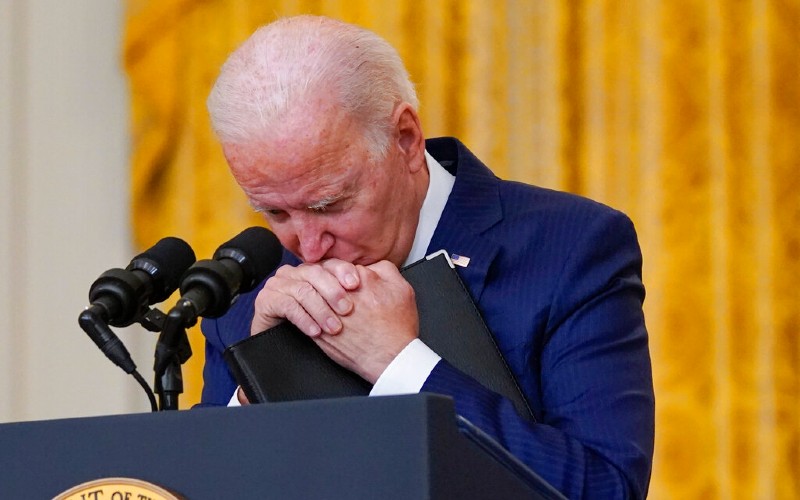The recent announcement that embattled Rep. George Santos (R-New York) won’t seek re-election means 30 U.S. House members at this time will voluntarily leave the 435-member body.
Santos could actually leave sooner than next November if he’s expelled. Rep. Michael Gues (R-Mississippi), the chair of the House Ethics Committee, last Friday introduced a measure to expel Santos of the committee’s report detailed “uncharged and unlawful conduct.”
The report claimed that Santos, whose list of lies are exceptional even in Washington, spent campaign money on things such as lavish trips and Botox.
NBC News reported that Santos scammed a disabled Navy veteran out of money purportedly raised for a cancer treatment for the veteran’s therapy dog.
The report definitely changes things on Capitol Hill, conservative freelance journalist Pedro Gonzalez said on American Family Radio Monday.
 Santos had a firmer foundation of support when he was under investigation. Now the report is out.
Santos had a firmer foundation of support when he was under investigation. Now the report is out.
“Initially even members who were reluctant to discuss expulsion were like, ‘Are we really going to do this over a few nasty media reports?’ Well, they've since changed their mind because the report that's come out on Santos has actually found that he's violated House rules. He's guilty of pervasive fraud," Gonzalez explained. "So now there actually is grounds for (expulsion), but I think the issue (for House members) is whether or not we should support it."
Rep. Brandan Boyle (D-Pennsylvania) told Axios that the initial Santos expulsion vote was premature.
“Now I will vote for expulsion,” Boyle said.
Republicans John Duarte of California, Greg Murphy of North Carolina and Dusty Johnson of South Dakota all appear ready to oust Santos.
Santos, 35, represents the 3rd District in New York, which includes Queens and Long Island.
After incumbent Tom Suozzi did not seek re-election, Santos won the open seat last year after defeating Democrat Robert Zimmerman 53%-46%.
In the original vote, 182 Republicans and 31 Democrats voted against expulsion with another four Republicans and 15 Democrats voting “present.”
 The embattled Long Islander was taking advantage of his constituents, and when he found himself in a tight spot he’d just lie, Gonzalez said.
The embattled Long Islander was taking advantage of his constituents, and when he found himself in a tight spot he’d just lie, Gonzalez said.
“You’re taking advantage of people who trust you to tell them the truth. That tells me that you’re actually a very bad person,” Gonzalez said.
Gonzalez told show host Jenna Ellis he disagreed with the Republican argument that Santos deserves to be defended in a Congress where everybody is considered corrupt.
Hard to guess what open seats mean
If the report provides a glimpse into Santos’ character, it doesn’t provide a glimpse into whether Republicans will hold the House for the 2025 legislative session.
Politico reports that Congress is on pace to have more members retire before the next election cycle than in any similar cycle over the past decade.
According to The Hill, seven Democrats are retiring and 11 more are seeking other offices. Four Republicans are retiring and three more are seeking other offices.
 Whether through retirement or expulsion, the Santos seat will become the eighth Republican vacancy.
Whether through retirement or expulsion, the Santos seat will become the eighth Republican vacancy.
This month alone, nine members of the House and Senate have said they won’t run for re-election next year. That’s the second-most in any single month going back at least as far as 2011 — and there’s still two weeks left in November.
A total of 34 members of Congress have already announced they’re not running again, and that doesn’t count those who plan to quit early or have already resigned, Politico reported.
More retirement announcements won’t be surprising. They tend to increase during the holidays.
Open seats often change hands
In recent years, open seats tend to be filled by the opposing party instead of the departing one, according to Vital Statistics on Congress.
A number of different factors impact the makeup of Congress. For the 2024 cycle that could include multiple redistricting cases currently making their way through the courts.
"There are about 10 to 12 states where this is happening. It's estimated this could potentially affect anywhere between 14 to 18 House seats, and that could sway the majority one way or the other," Brent Keilen said on Washington Watch in October.
Among the states impacted are Louisiana, Georgia, South Carolina and New York.
“I couldn’t give you a prediction or tell you what I think is going to happen. I've never actually been more disoriented. About what the future could look like. Everything feels like it’s in the air right now,” Gonzalez said. “I think we're living through a bizarre time of great upheavals, not just in terms of elections but also culturally.”







